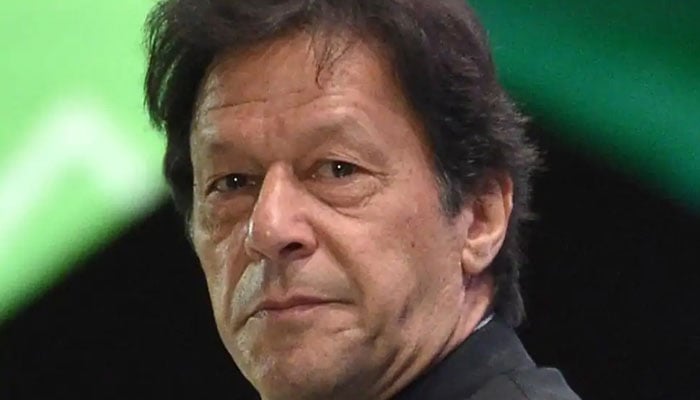PM Kaptaan and his captaincy
Public opinion has certainly begun to waver on the PTI and its ability to govern, but such an epic number has been done on the PML-N and the PPP that it may be several quarters before the public embraces anyone named Sharif, Bhutto or Zardari again. As a result, despite thin numbers in the Punjab and the centre, the PTI government is under no threat of political upheaval.
Sooner or later Prime Minister Imran Khan will have to overcome the shock and awe of having become prime minister. Nawaz Sharif and Shahbaz Sharif are in jail. Maryam Nawaz Sharif has finally put away her smartphone and stopped tweeting. Asif Ali Zardari and Faryal Talpur are packing their bags for jail. And young Bilawal Bhutto Zardari is trying to find the appropriate balance between being a convincing anti-establishment voice and convincing the establishment to go easy on his family.
Public opinion has certainly begun to waver on the PTI and its ability to govern, but such an epic number has been done on the PML-N and the PPP that it may be several quarters before the public embraces anyone named Sharif, Bhutto or Zardari again. As a result, despite thin numbers in the Punjab and the centre, the PTI government is under no threat of political upheaval.
Opposition politicians with the integrity and nous to understand what is happening in this country have been reduced to tweeting about the posture of Pakistani delegations visiting abroad. There is a dark, unbreathable smog that has descended upon Pakistani politics – but the sun is shining in its full glory on the PTI, perhaps in a manner unprecedented for any political party in this country’s history. Watching PM Khan make a hash of basic history, watching him fumble with basic messaging about the economy, and watching him idly stand by as his cabinet slaughters the notion of ministerial dignity has been quite the sight. Especially given that there is no one to take advantage of this utter incompetence and lack of preparation.
The accumulating weight of this government’s cluelessness on a range of issues has yet to undo the overall promise that its supporters, including powerful people across the range of the country’s institutions, have attached to it. The three broad agendas that PM Khan needs to focus on remain: a) compassion, or the wellbeing of the ordinary Pakistani, (or the micro-economy); b) prosperity, or the economy’s ability to generate enough room for Pakistan to enjoy medium-term growth, (or the macro-economy); and c) normalcy, or the domestic, regional and global circumstances that keep Pakistan’s streets and its markets safe.
Delivering on such an ambitious agenda is very different than running a cricket team or a charity hospital. But since the PM is so given to cricketing metaphor, here is an attempt to frame his new job.
For simplicity’s sake, PM Khan gets to be captain as he has been all his life. This is a familiar role for him. Those than fawn and swoon over his every itch are given to the same arrogant and out-of-touch notion that he is: that the transition from cricket team captain to prime minister is easy, because all you need is an honest man at the top. Reality is a little less convenient.
First, the easy part. If being PM is the same as being Kaptaan, then the PM must understand that even though he thinks that the army and the judiciary are the equivalent of the cricket board and the team manager, in fact they are not. The equivalent of the cricket board is our parliament – both the National Assembly and the Senate, while the equivalent of Intikhab Alam, the legendary manager that helped him captain Pakistan to a World Cup, is his party.
This is a crucial point for both the prime minister and the rank and file of the PTI to grasp and understand. They can dislike the PML-N, the PPP, and indeed any and all other political parties, but they must learn to respect what those other parties represent. They represent an articulation of will, of agency, of demand, of hopes, of anger, and of the dreams of Pakistanis. Prime Minister Imran Khan is prime minister for every single Pakistani alive. He can be contemptuous of how poorly those Pakistanis are represented by his opponents. But he cannot afford to seem like he has contempt for those Pakistanis.
The contempt and hatred for traditional politics that is a membership requirement for the PTI is not shared by all Pakistanis. PM Khan has ridden this contempt to the highest office in the country, but if he does not disembark from this high horse and learn to respect the will of those that do not like him, he will not be able to deliver on his agenda of compassion, nor his agenda for prosperity, nor indeed his agenda for normalcy.
The reason is simple. Large, transformational change requires forging political consensus. Beginning with the first session of the new parliament, the prime minister has reacted like a firebrand member of the opposition to nearly every slight since he won the election in July. Responding to provocation when you are prime minister has to be materially different from the manner in which you react as opposition member. If you are reacting as prime minister, you are basically saying you have no agenda, and that your agenda is to respond to someone else’s. Power is about framing and driving an agenda and forcing your opponents to respond to your agenda. The prime minister and the PTI need to come to terms with the fact that wailing from the top of the container is not an adequate tactic for a government that has a serious agenda.
Once Kaptaan can reframe the role of parliament as equivalent to his cricket board, he needs to understand that his party is the equivalent of Intikhab Alam: his manager. This is a relationship of trust and respect. His party’s role is not to act as the boss, but to offer advice and protection, and to serve as a foil when things are not going great. Is this really the role the PTI has played since its victory in the July elections? Sadly, far from it.
All parties are made up of strong personalities that try to establish proximity to the leadership, often at each other’s cost. But a party in power should not, ideally, become so embroiled in competitiveness that members’ attempts to ingratiate themselves to the leadership begin to come at the expense of the leader’s agenda itself. The PTI has three camps: ideological (those that believe in the party’s mission), monied (those that have financed the party) and proximate (those close to Imran Khan). The average PTI supporter knows who is who, and so does the PM. The competition and the overlap among and between these camps should work to reinforce the PM’s agenda for compassion, of prosperity and of normalcy. If they do not, the problem may be with Intikhab Alam, but it is Kaptaan’s to solve.
So with the cricket board and the manager sorted, what is left for a Kaptaan to do? It is to figure out his playing eleven, and his field placements. His playing eleven includes the army and the judiciary, and for constitutional and political reasons, he has no choice in the matter of where he places those two: a wicketkeeper always stands behind the wicket, and a bowler always takes his place at the start of his run up. But his team also includes the provinces and perhaps most importantly his cabinet. Can he afford Sindh or Balochistan to not be driving in the same direction as him? And can he afford a cabinet that is divided, with members sniping publicly at each other?
Perhaps most important of all, his playing eleven includes the PM Office and the bureaucracy. Ultimately, a captain is only as effective and competent as the team that he is managing. You win World Cups because the middle order gets stuck in, the wicketkeeper and the outfield take their catches and the bowlers bowl what they are told to bowl.
Two decades of political struggle have brought Kaptaan to 2019. There are no more excuses. This is his team, his moment, his World Cup.
The writer is an analyst and commentator.
-
 Actor Awards 2026 Winners: Complete List
Actor Awards 2026 Winners: Complete List -
 UK Asylum System Faces Changes As Refugees Will Get Temporary Protection Only
UK Asylum System Faces Changes As Refugees Will Get Temporary Protection Only -
 Meghan Markle Has Realised ‘star Power’ Is Not Enough After Jordan Trip
Meghan Markle Has Realised ‘star Power’ Is Not Enough After Jordan Trip -
 USC Leading Scorer Chad Baker-Mazara Leaves Program Amid Losing Streak
USC Leading Scorer Chad Baker-Mazara Leaves Program Amid Losing Streak -
 Google Is Winding Down Popular App 'Pixel Studio': Here's Why
Google Is Winding Down Popular App 'Pixel Studio': Here's Why -
 Zendaya, Tom Holland Secretly Married?
Zendaya, Tom Holland Secretly Married? -
 Dove Cameron Reveals Why She's Limiting Relationship Talk After Damiano David Engagement
Dove Cameron Reveals Why She's Limiting Relationship Talk After Damiano David Engagement -
 Bulls Vs Bucks: Giannis Out, Simons And Williams Sidelined
Bulls Vs Bucks: Giannis Out, Simons And Williams Sidelined -
 Princess Beatrice Is ‘haunted’ By Dreadful Shamed Andrew Arrest
Princess Beatrice Is ‘haunted’ By Dreadful Shamed Andrew Arrest -
 Panthers Vs Islanders: Dmitry Kulikov Returns From Injured Reserve As Schwindt Hits IR
Panthers Vs Islanders: Dmitry Kulikov Returns From Injured Reserve As Schwindt Hits IR -
 SAG-AFTRA Drops SAG Awards Name To Rebrand
SAG-AFTRA Drops SAG Awards Name To Rebrand -
 Next Full Moon: How To Watch The Total Lunar Eclipse On March 3
Next Full Moon: How To Watch The Total Lunar Eclipse On March 3 -
 Bhad Bhabie Shares Tender Moment With Daughter Amid Cancer Setback Hint
Bhad Bhabie Shares Tender Moment With Daughter Amid Cancer Setback Hint -
 Silver, Gold Prices Surge Amid Geopolitical Uncertainty After US-Israel Attack On Iran
Silver, Gold Prices Surge Amid Geopolitical Uncertainty After US-Israel Attack On Iran -
 Britain To Trial Social Media Ban For Hundreds Of Thousands Of Children Under-16
Britain To Trial Social Media Ban For Hundreds Of Thousands Of Children Under-16 -
 Prince Harry Should Face Same Fate As Shamed Andrew, Says Expert
Prince Harry Should Face Same Fate As Shamed Andrew, Says Expert




